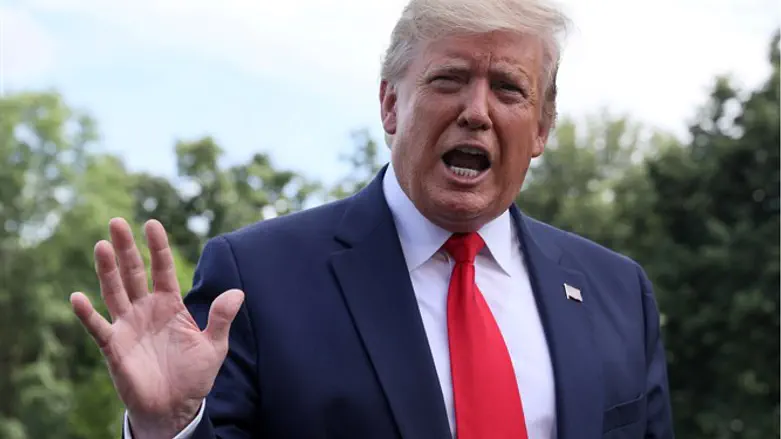
American intelligence and military officers are working on additional clandestine plans to counter Iranian aggression in the Persian Gulf, current and former officials told The New York Times on Sunday.
The officers have been pushed by the White House to develop new options that could help deter Tehran without escalating tensions into a full-out conventional war, according to the report.
The goal is to develop operations similar to the cyberattacks conducted on Thursday and that echo the shadow war the United States has accused Tehran of carrying out with attacks on oil tankers in the Middle East, according to American officials briefed on the effort.
Iran maintains that it was not responsible for the attacks on the tankers.
The cyberattacks were aimed at an Iranian intelligence group that American officials believe was behind a series of attacks on tankers in the Persian Gulf region. The American operation was intended to take down the computers and networks used by the intelligence group, at least temporarily. A separate online operation was aimed at taking out computers that control Iranian missile launches.
The White House has told military and intelligence officials it also now wants options in line with the kind of operations conducted by Iran's Islamic Revolutionary Guards Corps, the officials told The New York Times.
President Donald Trump has made clear he believes that, at this point, a direct strike would be escalatory, although he has repeatedly warned Iran against further aggression.
Intelligence and military officials have told White House policymakers, including Trump, that without an additional American response, Iran will continue to destabilize the region.
Some divisions of opinion within the administration remain. While a number of senior national security officials agree that further action against Iran is needed, they are divided about how public that action needs to be.
Officials did not provide specifics about the secret operations under consideration by the White House. But they could include a wide range of activities such as additional cyberattacks, clandestine operations aimed at disabling boats used by Iranians to conduct shipping attacks and covert operations inside Iran aimed at fomenting more unrest.
The United States might also look for ways to divide or undermine the effectiveness of Iranian proxy groups, officials said. The officials spoke on condition of anonymity to discuss sensitive, confidential administration planning.
On Thursday night, it was revealed that Trump had approved military strikes against Iran in retaliation for downing an American surveillance drone, but pulled back from launching them.
On Friday, the president tweeted that he was "cocked and loaded" to strike several targets in Iran but deemed the loss of life would be disproportionate to the downing of an unmanned US drone.
Trump later made clear that he had not called off the planned strike on Iran.
“I never called the strike against Iran ‘BACK,’ as people are incorrectly reporting, I just stopped it from going forward at this time!” he tweeted.
Trump toldNBC News over the weekend that he doesn't want war with Iran, but if it comes there will be "obliteration like you've never seen before."
He said in the interview there were no pre-conditions for US talks with Tehran.
"You can't have nuclear weapons," Trump said. "And if you want to talk about it, good. Otherwise, you can live in a shattered economy for a long time to come."
One former American military commander told the New York Times there were a range of options that the Pentagon and the C.I.A. can pursue that could keep Iran off balance but that would not have crystal-clear attribution to the United States. An American operation that was not publicly announced could still deter further action by Tehran, if Iran understood what United States operatives had done, the former officer said.